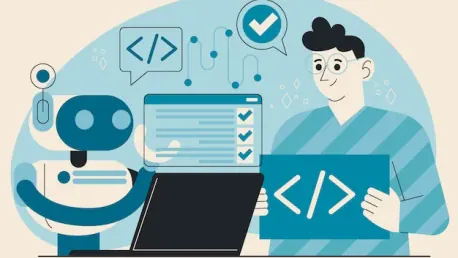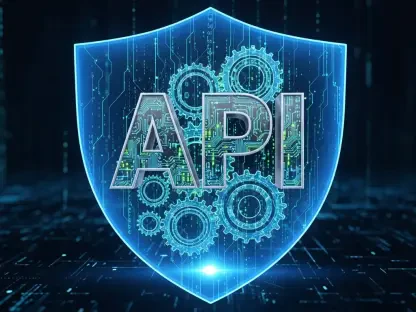Artificial intelligence (AI) is revolutionizing software development, particularly in Python programming. With advancements in AI, developers now have access to cutting-edge tools that streamline workflows, detect errors, provide real-time suggestions, and significantly boost productivity. These tools are invaluable, making it easier than ever to write, debug, and optimize code efficiently. This article explores the top AI tools specifically designed to enhance Python coding, making the selection process simpler for developers across all experience levels.
Real-time Code Suggestions
The ability to receive real-time code suggestions is one of the most significant advancements AI has brought to Python programming. Tools such as GitHub Copilot, Tabnine, CodeWhisperer, and Replit Ghostwriter are pioneering this feature. GitHub Copilot, powered by OpenAI’s Codex, integrates seamlessly with popular Integrated Development Environments (IDEs) like Visual Studio Code. It provides auto-completions and code suggestions based on the context and developer’s coding style, facilitating a smooth and intuitive coding experience. This not only speeds up the development process but also helps developers concentrate on crafting robust applications.
Tabnine utilizes deep learning models to deliver precise and rapid code completions. It stands out due to its added focus on privacy, offering offline modes ensuring that code remains secure. Amazon CodeWhisperer, developed by AWS, is tailored for cloud-related projects, offering real-time suggestions and security features, including vulnerability detection. Replit Ghostwriter supports collaborative coding and script generation within a browser-based IDE, making it accessible and convenient for remote teams. The collective impact of these tools is profound, reducing the cognitive load on developers and allowing them to focus on more creative and complex aspects of application development.
Personalized Code Assistance
Personalized code assistance is another area where AI tools excel, adapting to a developer’s unique coding style and preferences. Tools like Tabnine and Codeium are particularly noteworthy. Tabnine learns from a developer’s habits, ensuring that its suggestions become increasingly aligned with their individual needs over time. This deep learning-driven personalization culminates in a coding process that is faster, more intuitive, and customized.
Codeium, a free AI coding tool, offers context-aware suggestions and auto-completions, learning from the developer’s input to provide personalized assistance. Its lightweight design allows for easy integration with IDEs such as VS Code and JetBrains, making it accessible for budget-conscious developers and students. This personalized approach significantly enhances coding efficiency and ensures that developers can work in a manner that best suits their style and needs, ultimately fostering a more productive and enjoyable coding environment.
Code Generation and Natural Language Coding
For developers interested in converting natural language descriptions into executable Python code, AI tools like Cursor AI and Claude offer remarkable capabilities. These advanced tools are designed to translate plain English descriptions into precise code, facilitating brainstorming and prototyping. Cursor AI, for instance, features a Composer tool that enables developers to describe functionalities in natural language and receive corresponding code.
Claude by Anthropic combines natural language scripting and detailed code explanations, allowing developers to rapidly prototype and brainstorm ideas effortlessly. This feature is especially beneficial in collaborative environments where clear communication of ideas is crucial. By bridging the gap between conceptualizing features and coding them, these tools empower developers to quickly translate their ideas into functional applications, streamlining the development process and boosting productivity.
Error Detection and Debugging
Error detection and debugging are critical components of the coding process, and AI tools such as Cursor AI, Bito, and JetBrains AI Assistant offer robust capabilities in this area. These tools analyze the codebase to identify errors, suggest corrections, and provide detailed explanations, simplifying the debugging process significantly. Cursor AI excels in smart debugging and multi-file editing, allowing developers to find and fix issues swiftly.
Bito understands an entire Python codebase, offering accurate suggestions, AI-driven code reviews, and extensive debugging support. Integrated with both Command Line Interface (CLI) and IDE environments, Bito is suitable for teams working on complex Python projects. JetBrains AI Assistant, built into IDEs like PyCharm, provides inline suggestions, refactoring tips, and error detection, enhancing the overall coding experience. These sophisticated debugging features are invaluable, reducing the time spent on troubleshooting and helping maintain smooth development workflows.
Security and Privacy
Security is a paramount concern in coding, and AI tools like Amazon CodeWhisperer and Tabnine offer effective solutions to address this need. These tools feature comprehensive security scans and vulnerability detection to ensure that the code is secure and free from potential threats. Amazon CodeWhisperer integrates seamlessly with AWS services, making it particularly useful for cloud-related projects where security is vital.
Tabnine’s emphasis on privacy with its offline modes ensures that code completions remain local and private, protecting the integrity of the codebase. This focus on security and privacy is essential for developers who deal with sensitive data and require robust protection measures within their development environments. By incorporating these AI tools, developers can ensure that their projects maintain high security standards, safeguarding their work from vulnerabilities and threats.
Optimizing Code Quality
Maintaining clean and high-quality code is crucial for the success of any project, and tools like Sourcery are designed to assist developers in this pursuit. Sourcery specializes in real-time code optimization and refactoring, providing suggestions to improve code readability and maintainability. By enforcing best practices and suggesting improvements, Sourcery helps developers keep their codebase efficient, clean, and error-free.
JetBrains AI Assistant also contributes to optimizing code quality by offering inline suggestions and refactoring tips within the JetBrains IDEs. This integration ensures developers receive consistent feedback on how to enhance their code throughout the development process. These tools are indispensable for developers aiming to uphold high standards of code quality, enabling them to produce maintainable and efficient code that meets industry best practices.
Enhancing Coding Efficiency and Quality
Artificial intelligence (AI) is transforming software development, especially in Python programming. Thanks to advancements in AI, developers now have access to advanced tools that greatly enhance their workflows. These tools not only help streamline processes but also detect errors in real-time, offer immediate suggestions, and significantly boost productivity. Their value is undeniable, making it simpler than ever to write, debug, and optimize code with efficiency. This article delves into the top AI tools specifically crafted to improve Python coding, rendering the selection process easier for developers irrespective of their experience. By utilizing these cutting-edge AI tools, developers can elevate their coding practices and achieve higher quality results more quickly. From novice coders to seasoned professionals, everyone stands to benefit from the powerful capabilities provided by these AI-powered solutions in Python programming.









